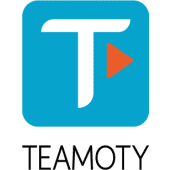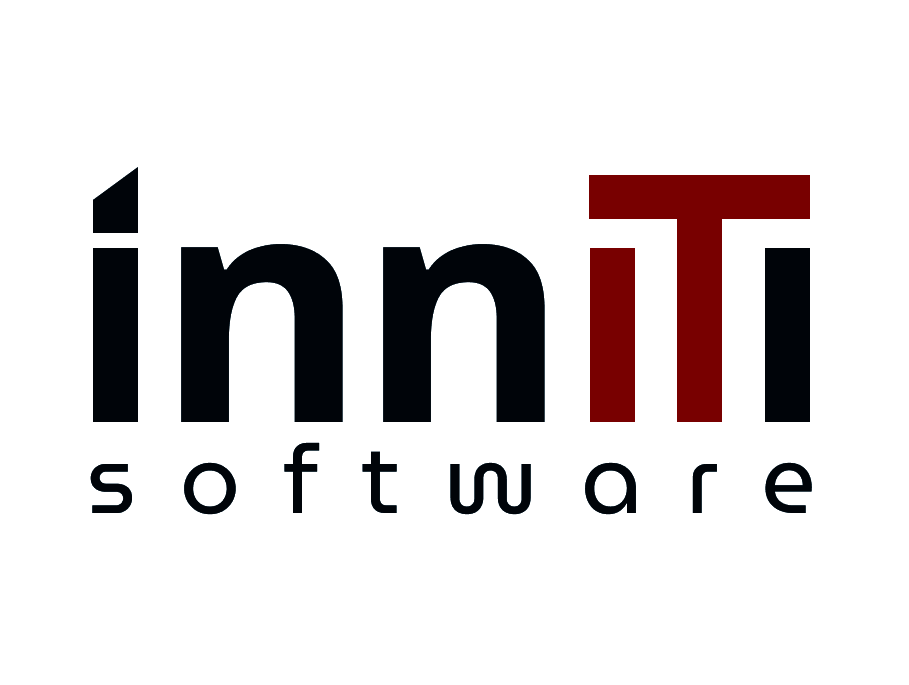What Is Construction Scheduling Software?
Construction Scheduling Software is a type of specialist software that automates and optimizes construction project planning and scheduling operations. It is a strong tool that assists construction organizations, contractors, and project managers in effectively managing projects, resources, and timeframes, resulting in better project delivery, enhanced productivity, and lower total costs.
This software automates a variety of project scheduling processes, including schedule creation, task assignment, progress tracking, and resource management. It also promotes collaboration and communication among team members and stakeholders, ensuring that everyone is on the same page and working toward a single goal. One of the most important characteristics of Construction Scheduling Software is the ability to generate visual project timelines, which make it easier to track and manage project progress.It also supports the integration of construction plans, drawings, and other essential documents, making it a complete project scheduling and management solution.
Many construction scheduling software packages include extensive capabilities such as resource management, cost tracking, and risk analysis, allowing project managers to make educated decisions and avoid any delays and interruptions.
With real-time updates and warnings, this software guarantees that any modifications or delays are quickly reflected in the schedule, allowing for more efficient and effective project management. Construction Scheduling Software, in addition to project management capabilities, may provide reports and analytics that provide crucial insights and data for project evaluation and decision-making.
This program is also very adaptable, so customers can tailor it to their individual project needs and preferences. Investing in Construction Scheduling Software can help construction organizations increase project productivity and save expenses. With its extensive capabilities and user-friendly design, this program is a tremendous asset for any building project, making it an essential tool for purchasers in today's competitive market.
What Are The Recent Trends In Construction Scheduling Software?
In recent years, the construction sector has experienced major technological and software developments, particularly in the subject of scheduling. Traditional scheduling methods based on pen and paper or spreadsheets are soon becoming obsolete, and construction businesses are moving to digital solutions for more effective and accurate project management.
One of the most important developments in construction scheduling software is the incorporation of artificial intelligence and data analytics. This enables predictive scheduling, in which the software combines historical data and real-time changes to forecast project timeframes and identify potential delays. Another trend is the migration to cloud-based scheduling tools.
This enables real-time collaboration and access to project schedules from any place, making it easier for contractors, project managers, and clients to stay informed about project status. Mobile compatibility is increasingly becoming an important component in construction scheduling software. With the rise of smartphones and tablets, a mobile-friendly scheduling application enables project managers to update schedules and communicate with the team while on the road, increasing overall efficiency and productivity.
Furthermore, many construction scheduling software now provide configurable templates and drag-and-drop interfaces, making it easier for users to design and alter schedules based on their individual project requirements. Furthermore, with a growing emphasis on sustainability and green building practices, many construction scheduling software packages now include features for tracking and managing environmental impacts, materials, and resources, assisting businesses in lowering their carbon footprint and meeting sustainability objectives.
Finally, there is an increasing trend of integrating with other project management tools, such as BIM (Building Information Modeling) software. This enables improved collaboration and coordination among many parts of a building project, resulting in increased efficiency and a lower risk of errors.
Benefits Of Using Construction Scheduling Software
Construction projects are notorious for their complexity and tight deadlines, thus contractors and project managers must have a well-organized and effective schedule management system. Here's where construction scheduling software comes in. This platform provides a comprehensive and streamlined solution for effectively planning, tracking, and managing construction projects. In this buyer's guide, we'll go over the numerous benefits of adopting construction scheduling software, so you can make an informed decision for your company.
1. Increased Productivity And Efficiency In Project Scheduling: Construction scheduling software automates laborious and time-consuming operations including establishing schedules, changing them, and tracking progress. This eliminates the need for paper-based systems like spreadsheets, which are error-prone and time-consuming. By automating these duties, construction scheduling software enables project managers to concentrate on other important areas of the project, resulting in enhanced efficiency and productivity.
2. Real-Time Visibility And Collaboration: Construction scheduling software provides real-time visibility into project schedules and progress, allowing project managers to make educated decisions and alter schedules as needed. It also lets team members to collaborate by communicating updates, changes, and issues in real time. This encourages transparency and accountability among team members, resulting in improved project coordination and, eventually, timely project completion.
3. Resource And Cost Management: Resource and cost management is an integral component of project management. Construction scheduling software includes capabilities such as resource tracking and cost forecasting, which provide project managers with a full perspective of resource allocation and expenses. This aids in avoiding over or underallocation of resources, lowering expenses, and enhancing profitability.
4. Risk Management And Mitigation: Construction projects are frequently subject to risks such as delays, conflicts, and budget limits. Construction scheduling software enables project managers to detect potential risks early on and design mitigation solutions. Critical path analysis and project simulations help to optimize the schedule and reduce delays, lowering the likelihood of risks.
5. Improved Communication And Client Satisfaction: Effective communication is essential for effective project completion and client satisfaction. Construction scheduling software provides a single communication platform from which all project stakeholders may obtain project updates, timetables, and status reports. This eliminates confusion and delays, resulting in increased client satisfaction.
Important Factors To Consider While Purchasing Construction Scheduling Software?
When it comes to maintaining a smooth and effective construction process, the correct scheduling software is essential. But with so many options on the market, it might be difficult to select the ideal one for your individual requirements. To help you make an informed decision, we've identified the most critical things to consider when selecting construction scheduling software.
1. Ease Of Use: The first and most important consideration is how easy the software is to use. It should have an easy-to-use interface that your team can rapidly adapt to. This will save you time and effort in training while ensuring a smooth transition to the new system.
2. Features And Functionality: Look for software with comprehensive features to satisfy the needs of your building projects. These may include task management, resource allocation, Gantt charts, and real-time collaboration, among others. Assess your project's specific needs and select software that includes the functionality you desire.
3. Cloud-Based Or On-Premise: Construction scheduling software is available in both cloud and on-premise formats. While cloud-based software enables remote access and automatic upgrades, on-premise software provides more control over data management and security. Before you make a decision, think about your organization's needs and infrastructure.
4. Integration Capabilities: Your scheduling software should be able to effortlessly interact with the various project management tools and systems you use. Accounting software, document management systems, and BIM software are all possible examples. Integration capabilities will provide a smooth flow of information and data across several tools.
5. Customization Options: Each building project is unique, as are its scheduling requirements. Look for software with customization options so you may adjust it to your individual needs. This will save you time and effort in manually modifying the software to suit your projects.
6. Mobile Accessibility: In today's fast-paced workplace, having access to project information on the go is critical. Look for software that includes a mobile app or is designed for mobile use. This will allow your team to stay informed and make timely decisions wherever they are.
7. Customer Help And Training: A good program is more than simply its features; it also includes the vendor's help and training. Look for a software vendor that provides dependable customer assistance across several channels, as well as training resources to help your team get the most out of the product.
What Are The Key Features To Look For In Construction Scheduling Software?
When it comes to managing construction projects, timing is critical. Construction scheduling software is intended to streamline the planning and scheduling processes, so ensuring that projects are finished on schedule and within budget. However, with so many alternatives available, it can be difficult to identify which software is ideal for your needs. To make the decision easier, below are the main things to look for in construction scheduling software:
1. Customizable Templates: Each construction project is unique, as are the schedules. Look for software with adjustable templates that may be adjusted to your individual project needs.
2. cooperation Tools: Because construction projects involve various teams and stakeholders, it is critical to have software that facilitates smooth cooperation. Real-time updates and file sharing can help everyone stay on the same page and avoid delays.
3. Resource Management: Effective resource management is the foundation of efficient construction scheduling. Look for software that lets you distribute resources, track availability, and handle disputes to help you meet project deadlines.
4. Visual Planning: Having a visual depiction of the project plan can assist project managers better comprehend and communicate the timetable with stakeholders. Look for software that includes Gantt charts, Critical Path Method (CPM) diagrams, and other visual aids.
5. Mobile Accessibility: Because construction projects frequently require on-site supervision, having software that can be accessed via mobile devices is critical. Look for software with a mobile app or a web-based platform that works with all devices.
6. Integration With Other Applications: Construction projects use a variety of software and applications, including accounting and project management systems. Look for software that connects with these technologies to improve overall project management efficiency.
7. Document Management: Construction projects generate a large amount of documentation, such as contracts, designs, and modification orders. Look for software that includes document management features to help you organize and track these important documents.
8. Reporting And Analytics: Data-driven insights are critical for making educated decisions and recognizing opportunities for development. Look for software with extensive reporting and analytics capabilities to help you evaluate progress, resource utilization, and potential bottlenecks.
Why Do Businesses Need Construction Scheduling Software?
Construction scheduling software is an essential tool for construction-related organizations. Its purpose is to streamline and optimize the project scheduling process, resulting in more efficient and successful construction project management. In today's fast-paced business environment, where deadlines and budgets are continually under strain, construction scheduling software is a vital asset that may have a big impact on a company's bottom line. Here's why companies need construction scheduling software.
1. Efficient Resource Management: Construction scheduling software helps firms manage their resources more effectively by offering real-time visibility into the availability and allocation of staff, equipment, and supplies. Companies can prevent disagreements or delays in resource usage, which leads to increased production and cost savings.
2. Accurate Project Planning: Construction scheduling software allows firms to plan their projects more properly by breaking them down into smaller jobs, creating realistic schedules, and accounting for potential delays or difficulties. This level of precision aids in delivering projects on time and within budget, resulting in a competitive advantage in the business.
3. Streamlined Communication: One of the primary advantages of construction scheduling software is its ability to promote streamlined communication between project stakeholders. By offering a single platform for exchanging project updates, schedules, and revisions, the software helps to reduce miscommunications, conflicts, and delays.
4. Improved Collaboration: The software also encourages improved collaboration among project teams by providing real-time access to project data and enables team members to work together regardless of physical location. This increases collaboration and teamwork, resulting in higher-quality work and speedier project completion.
5. Cost Savings: Effective scheduling and resource management, precise planning and communication, and enhanced collaboration all result in cost savings for enterprises. Construction scheduling software reduces project overhead costs while improving profitability by eliminating unnecessary delays, averting conflicts, and avoiding rework.
How Much Time Is Required To Implement Construction Scheduling Software?
The implementation time for construction scheduling software varies depending on several aspects, including project size and software complexity. On average, it can take a few weeks to several months to fully integrate and customize the program for your construction requirements. The initial set-up and setup process often entails entering project information, defining calendars and deadlines, and configuring user accounts and access permissions.
This can take anything from a few days to a few weeks, depending on the amount of data and the project's complexity. If the program contains budget management and expense tracking functions, you may need to spend more time configuring them and integrating them with your current financial systems. Once the program is configured, the most time-consuming part of the implementation process is frequently training and onboarding your personnel.
It is critical that all users are comfortable with the software and understand how to use its capabilities successfully. This could take a few weeks to a few months, depending on the size of your crew and their familiarity with construction scheduling software. It is also worth noting that any potential complications or challenges that develop during the process may have an impact on the implementation timeline.
To guarantee a seamless and timely implementation, it is essential that you collaborate closely with the software vendor and assign a dedicated team or individual to oversee the process. In some circumstances, using a pre-configured or ready-to-use software solution can help to speed up the deployment process.
However, before making any judgments, you should carefully analyze your individual project requirements as well as the software's capabilities. Overall, while the implementation time for construction scheduling software may vary, it is critical to set aside sufficient time and resources to ensure a smooth and efficient transition to the new program. This will eventually lead to better project management and enhanced productivity in the long run.
What Is The Level Of Customization Available In Construction Scheduling Software?
Customization is an important consideration when selecting construction scheduling software for your firm. It allows you to customize the software to match your project's individual requirements and workflows. The level of customisation possible in construction scheduling software varies according to the software supplier. However, most credible software solutions include a great level of customisation, allowing you to tailor your scheduling process and maximize your productivity.
Templates are one approach to personalize construction scheduling software. These pre-designed templates provide a starting point for designing schedules that may be altered to meet your project's specific needs. This allows you to generate timetables more quickly and efficiently, saving time and effort. Another type of customisation is the ability to add custom fields and columns.
This enables you to add or alter data fields, allowing you to track project-specific information that may not be available in the standard software. For example, you can build a custom field to track subcontractor information or add additional columns to monitor the progress of specific projects. Furthermore, construction scheduling software frequently includes the option to configure user rights and access levels.
This allows you to control who has access to which information and functions in the software. For example, you can restrict access to important project data to specific team members, ensuring data protection and privacy. Some software solutions additionally include the ability to integrate with other programs and platforms. This level of customization allows you to integrate your scheduling software with industry-specific tools and systems, such as accounting software or project management platforms.
This integration saves time and streamlines data sharing across several platforms. In conclusion, the level of customization offered in construction scheduling software varies, but the majority of reliable systems provide extensive modification to fit your individual project requirements. From templates and custom fields to user rights and integration options, the ability to tailor your software can significantly improve your scheduling process and overall project productivity.
Which Industries Can Benefit The Most From Construction Scheduling Software?
Construction scheduling software is a valuable asset in today's fast-paced and complex construction business. It enables project managers, contractors, and other stakeholders to better manage their schedules, resources, and budgets, resulting in increased efficiency, cost savings, and on-time project delivery. Given the advantages that construction scheduling software provides, it's no surprise that it's becoming a must-have for numerous sectors.
So, which industries would gain the most from construction scheduling software?
1. Construction Companies: This is probably the most obvious industry that might benefit from construction scheduling software. Construction companies can use modern scheduling software to successfully plan and manage all aspects of their projects, whether they are small-scale repairs or large-scale commercial projects.
2. Architecture And Engineering Firms: frequently collaborate with construction companies to design and plan projects. They can use construction scheduling software to engage with construction crews in real time, make design changes, and keep the project on track.
3. Government Agencies: Government agencies are involved in a variety of construction projects, ranging from new road construction to public building renovations. Construction scheduling software allows them to streamline the approval process, monitor progress, and ensure that projects are completed on schedule and under budget.
4. Real Estate Developers: Developing new properties presents unique issues, such as managing different contractors, timetables, and budgets. Construction scheduling software streamlines the process by providing a unified platform for project management, allowing real estate developers to keep on top of their projects despite tight deadlines and complex specifications.
5. Manufacturing Organizations: Although not generally connected with construction, manufacturing organizations also require construction scheduling software. Whether they are constructing new facilities or expanding old ones, these businesses can use scheduling software to cooperate with contractors and guarantee that their production plans are not disturbed.
6. Educational Institutions: Construction projects in the education sector are popular, ranging from new facilities to renovations of old ones. Schools, universities, and other educational institutions can use construction scheduling software to successfully plan and manage their projects while minimizing disturbance to operations.
Conclusion
To summarize, selecting the correct construction scheduling software is critical for the success of any construction project. With so many options on the market, it can be difficult for buyers to make an informed purchase. By following the methods provided in this buyer's guide, you may narrow down your options and choose the ideal software for your individual project requirements.
First and foremost, assess your project objectives and identify the key elements you require in scheduling software. Consider the project's size, team size, complexity, and budget. Next, look into different software options and read reviews from fellow building experts. Look for software with an easy-to-use interface, real-time collaboration, and a proven track record of successful project management.
It is also necessary to assess the software's integration capabilities. Look for a product that integrates seamlessly with other tools and platforms that your team may already be using. In addition, consider the amount of customer assistance supplied by the software provider. Choose a vendor who provides dependable and fast customer assistance to ensure that the product is implemented and used smoothly.
Finally, use free demos or trials provided by software providers to test the features and interface before making a purchase. By carefully examining your project's requirements, studying several possibilities, and testing the software, you can make an informed decision and select the finest construction scheduling software for your team. With the appropriate tools in place, you can streamline project scheduling and increase productivity, resulting in successful project completion.



















